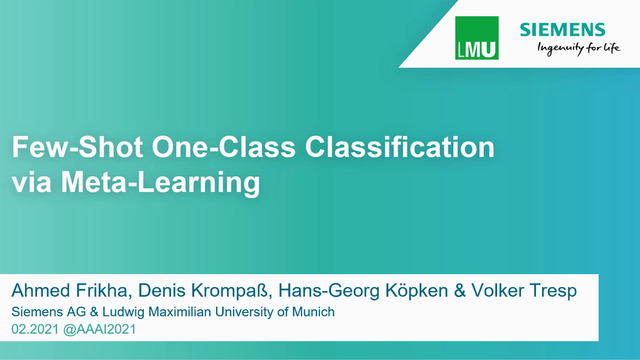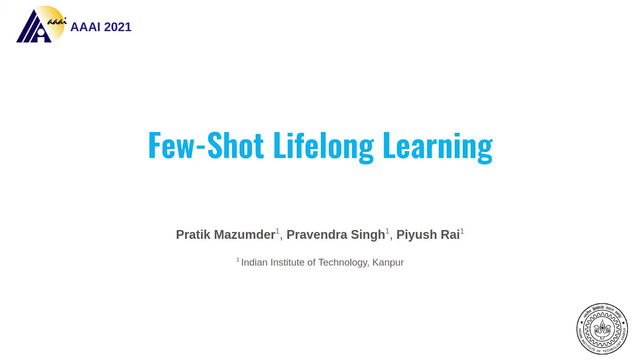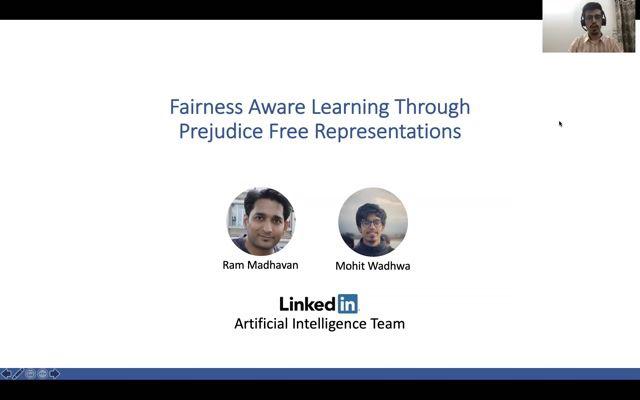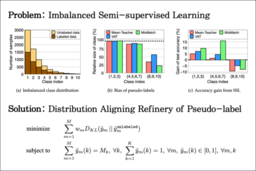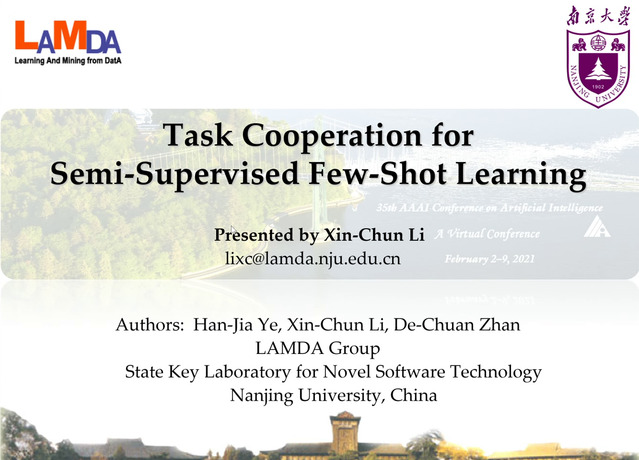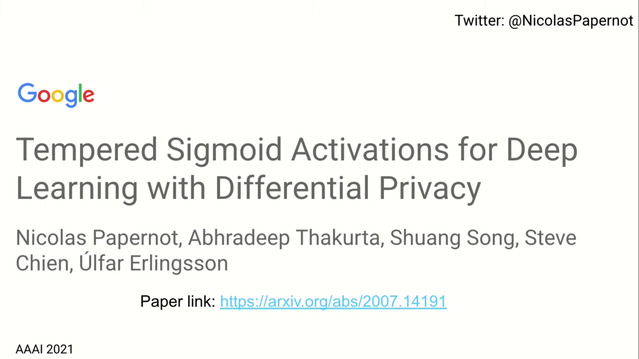Abstract:
Although few-shot learning and one-class classification (OCC), i.e., learning a binary classifier with data from only one class, have been separately well studied, their intersection remains rather unexplored. Our work addresses the few-shot OCC problem and presents a method to modify the episodic data sampling strategy of the model-agnostic meta-learning (MAML) algorithm to learn a model initialization particularly suited for learning few-shot OCC tasks. This is done by explicitly optimizing for an initialization which only requires few gradient steps with one-class minibatches to yield a performance increase on class-balanced test data. We provide a theoretical analysis that explains why our approach works in the few-shot OCC scenario, while other meta-learning algorithms fail, including the unmodified MAML. Our experiments on eight datasets from the image and time-series domains show that our method leads to better results than classical OCC and few-shot classification approaches, and demonstrate the ability to learn unseen tasks from only few normal class samples. Moreover, we successfully train anomaly detectors for a real-world application on sensor readings recorded during industrial manufacturing of workpieces with a CNC milling machine, by using few normal examples. Finally, we empirically demonstrate that the proposed data sampling technique increases the performance of more recent meta-learning algorithms in few-shot OCC and yields state-of-the-art results in this problem setting.
